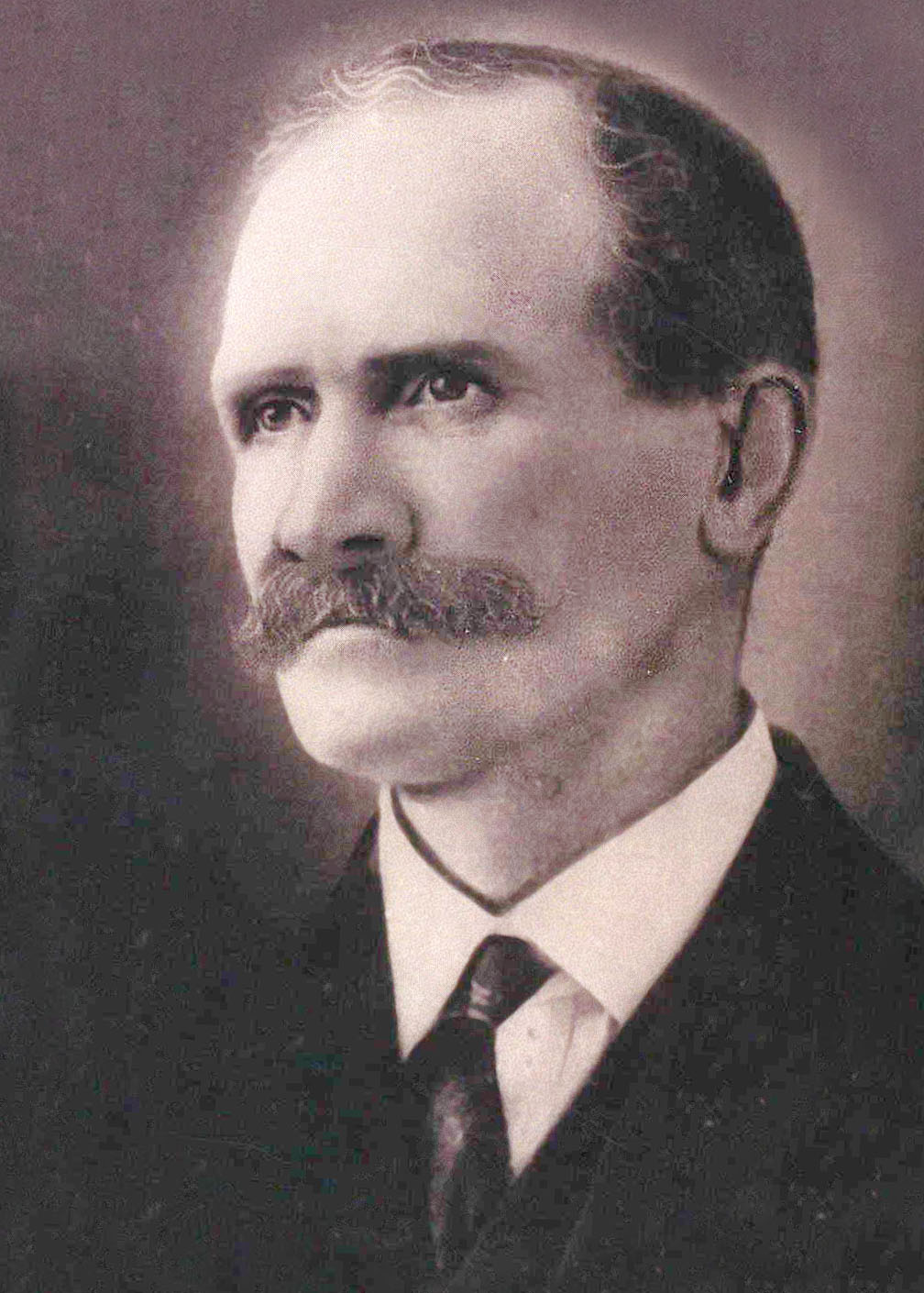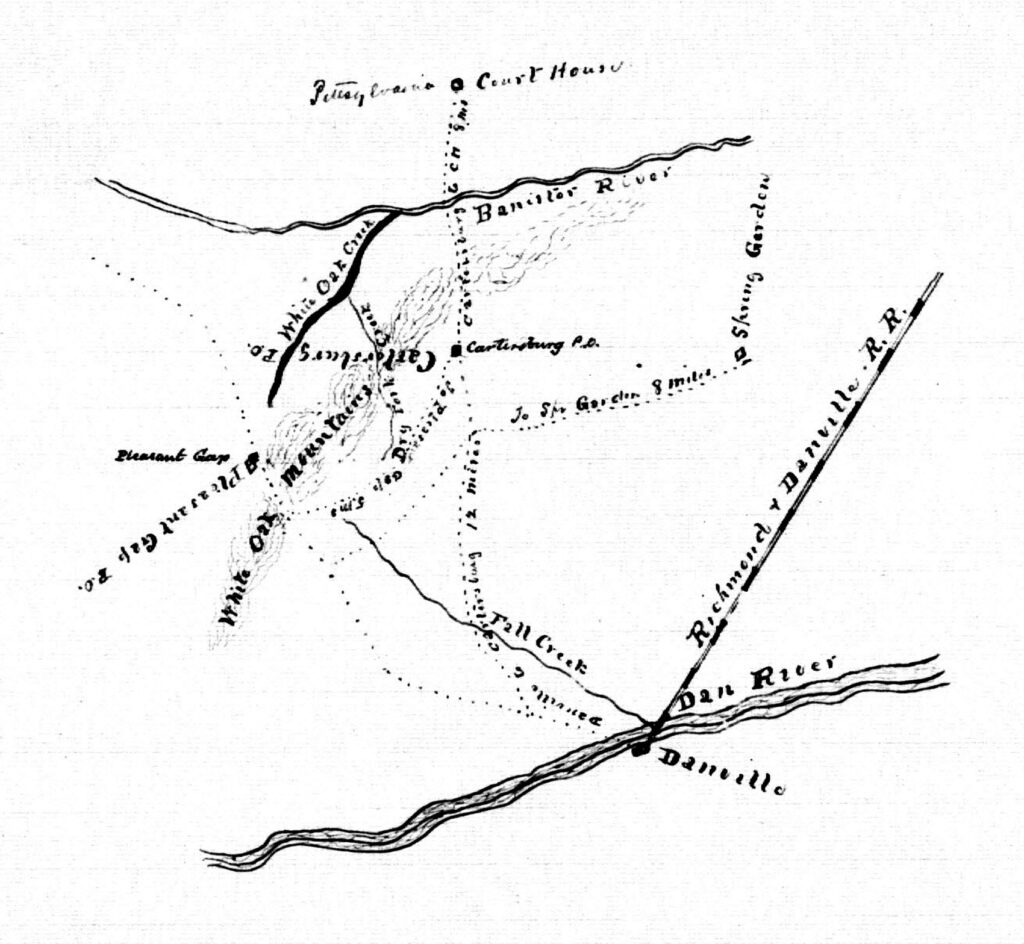
**This research was first published in the January 29, 2025 edition of the Chatham Star-Tribune newspaper as part of Kyle Griffith’s weekly segment entitled “Heritage Highlights.”
Edward Reuben Carter (1852-1925) of Cartersburg
Today, a trip down Route 29 South between Tightsqueeze and Blairs cuts right through the land once known as Cartersburg. In the late 1700s, the Carter family owned grand landholdings throughout the center of the county. Along the Green Rock Branch near the current site of the correctional facility were the agricultural lands of Thomas Carter, the Patriot (born 1734). He is the namesake of the local Daughters of the American Revolution Chapter. His brother Jesse Carter established Oakland Plantation, which is still in existence about a mile south of Tightsqueeze. They came from Lancaster County, Virginia where their forefathers had established the home called “Barford” in reference to the village in England they came from. Both Thomas and Jesse married and raised extensive families. Their descendants continued to establish various farms, businesses, and social developments within the community of Cartersburg during the 1800s. As a further note about the genealogy of the Carter family, many of their descendants were named Jesse Carter, so it is easy to get them confused.
Map drawn in 1870 to show the location of Cartersburg P.O.
By viewing an old hand drawn map of the Cartersburg area over 150 years ago, it seems that the Carter’s Store existed near the present site of White Oak Worship Center, where R & L Smith Road joins Highway 29. The map marker shows Cartersburg on the south side of White Oak Mountain, to the east of Pleasant Gap and Dry Fork Creek, slightly north of Spring Garden Road. It is likely that the Carter family were merchants much earlier than 1850, but with the increase in recorded detail in census records beginning in that year, some of the layout of the community can be deduced. Thomas Carter’s grandson Robert (born 1790) worked as a hat maker in the community and his brother Edward H. Carter had his farm close by. Robert’s son William S. Carter (born 1818) lived nearby and ran a store with his brother Jesse Lawson Carter (born 1828), whose occupation was listed as trader. Other nearby residents included a blacksmith Levi Wall, a carpenter James Slayton, a cabinet maker Edward Johnson, and a miller James Brightwell.
In 1857, a post office was established at Carter’s Store and the form detailed a population of thirty people within two miles of the location. They appointed Edwin T. Lewis as postmaster, but he only held the position for about three months before it was taken over by Jesse L. Carter. Jesse was married to former Miss Rebecca Townes, whose family had connections to many early public officials in Chatham and Danville, including the names Tunstall, Coleman, Hurt, and Wooding to name a few. To make things more complex, Cartersburg Post Office was discontinued in 1859, the year that Jesse’s first cousin of the same name Jesse Thomas Carter (born 1835) became postmaster in Chatham at the “Pittsylvania Court House Post Office.”
The Cartersburg Post Office remained closed during the Civil War, during which Jesse L. fought and survived several wounds at the Battle of Gettysburg and at Drewry’s Bluff. Following a bit of recovery from the war, the post office was reestablished in 1869 and Jesse’s son Edward Reuben Carter (born 1852) became a merchant like his father. Edward then became the postmaster of Cartersburg in 1873. As the development of the railroad rearranged the routes of the county, Dry Fork Depot was established about 3 ½ miles to the northwest of Cartersburg. This led Edward to consider the opportunities in the new coming era of rural freight business. In 1875, he discontinued the Cartersburg Post Office and moved his operations down to the railroad and established Fall Creek Depot (near the present Mount Hermon community) until 1880. Of further interest, Edward’s brother Halcott Townes Carter served as postmaster of Keeling.
The Fall Creek community grew and developed during the 1880s and 90s before it became known as Witt, but that is another story on its own. The Carter family held great influence within the county during those days before the railroad and the great breadth of their family tree is entwined with notable local figures throughout every era.


